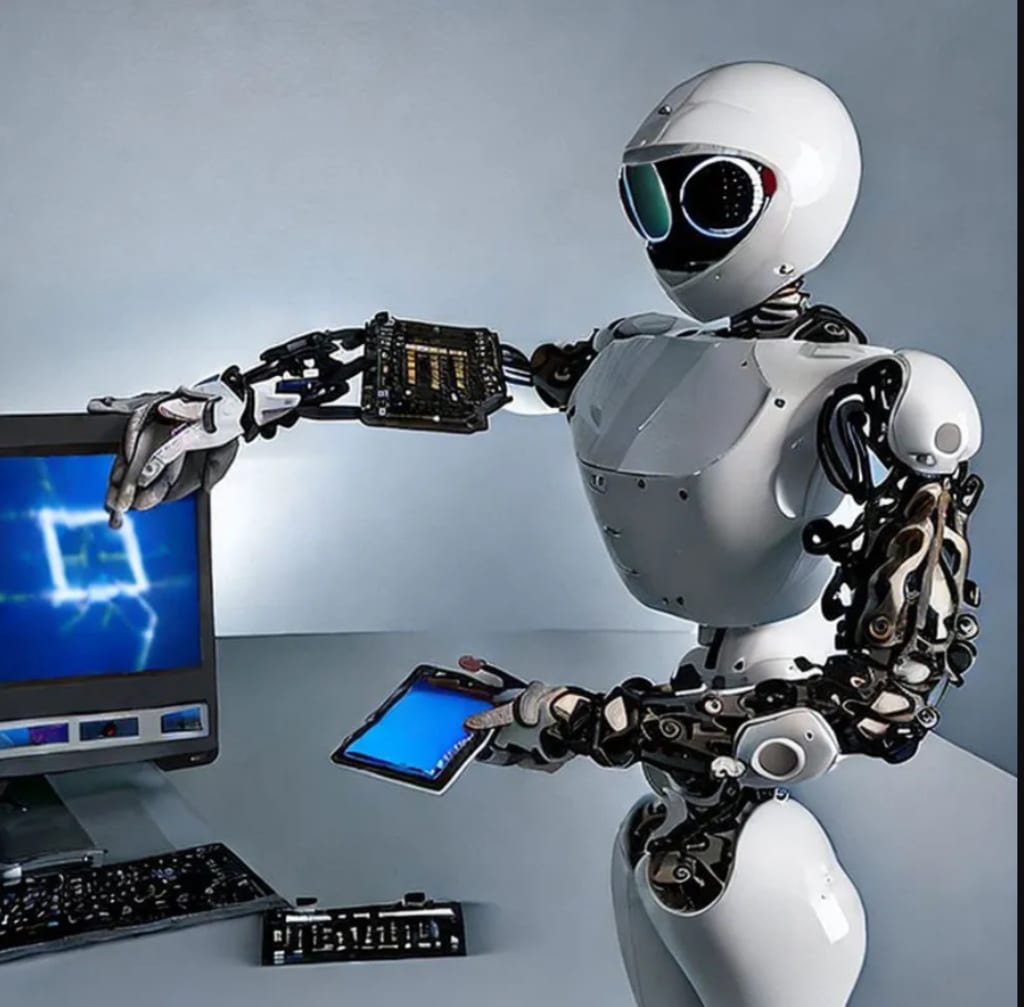Is Artificial intelligence out of Control?
Artificial intelligence is very popular

Let's discuss artificial intelligence. We essentially brought AI into existence. When you think of AI, you might envision scenarios like the one where an AI refuses to open the pod bay doors, as famously depicted in the movie "2001: A Space Odyssey." However, AI is no longer confined to science fiction; it's all around us. From algorithms suggesting videos or music you might enjoy to predictive text and chatbots answering your banking queries, AI has become as ubiquitous as electricity. We often underestimate how much our lives are being transformed by this technology. So, what exactly is AI? Why are many countries attempting to regulate it, and could it already be too late?
Artificial intelligence, at its core, refers to constructing computer systems that can solve problems and think in ways similar to humans. In practice, AI encompasses a wide range of applications. Broadly defined, intelligence is the capability to achieve complex objectives, and AI aims to achieve this, not by humans, but through machines like computers. Machine learning, a major approach within AI, revolves around the idea that computer algorithms can learn from data, recognize patterns, and make decisions with minimal human intervention. Unlike traditional computer programs, where we provide explicit instructions, machine learning algorithms create their instructions and continually refine them to improve their performance.
Over the past decade, AI has witnessed remarkable growth, driven by increasingly powerful computers and an abundance of data. Today, AI is being deployed across various industries, including home appliances, self-driving cars, and healthcare, where it holds great promise, such as assisting radiologists in identifying medical conditions more accurately. The current stage of AI development is often referred to as artificial narrow intelligence, where AI systems excel at specific tasks. However, the next technological leap is artificial general intelligence (AGI), where AI could rival human intelligence, performing a wide range of tasks simultaneously. While strides have been made in this direction, true AGI remains a distant goal.
The prospect of machines thinking like humans raises ethical and philosophical concerns. Controlling AI is vital due to the technology's impact on privacy, civil liberties, bias, and discrimination. Facial recognition, for example, poses risks when used by governments or police to monitor citizens, as seen in Russia and China. AI can amplify existing biases when trained on historical data, as evidenced by biased healthcare algorithms. Moreover, design flaws and assumptions can lead to catastrophic consequences, such as the Boeing 737 Max crashes, where an AI-powered autopilot system played a role. Legal and ethical questions arise when accidents involving AI, like self-driving car incidents, occur.
AI's role in warfare is another contentious issue, with concerns about autonomous weapons and the potential for catastrophic errors. Proposals for an international ban on such weapons have been discussed at the UN, but consensus remains elusive. Various jurisdictions are considering regulations for AI, with China and the EU implementing laws to govern its use, especially in the private sector. The EU's proposal categorizes AI technologies based on their risk levels and calls for transparency in their deployment.
In summary, AI is a powerful technology with vast potential for both good and harm. The rapid pace of AI development and the challenges of regulation pose concerns, but it ultimately falls upon society and governments to determine how AI is used and governed. It is well accesable for everyone around the world and people are enjoying using it as it makes lives even better and giving more detailed information. It has reached to so many countries even kids are able to use it and do their school work.





Comments (1)
Great job! Well written!